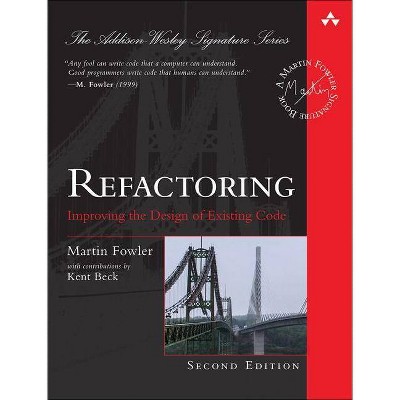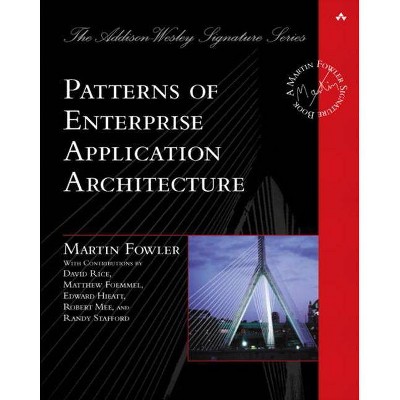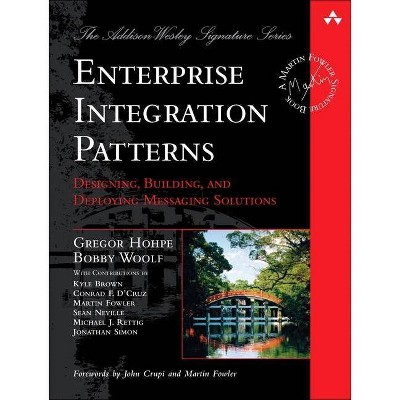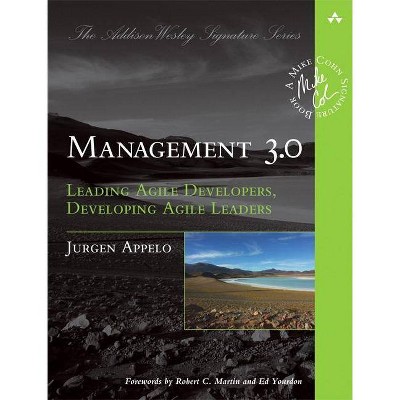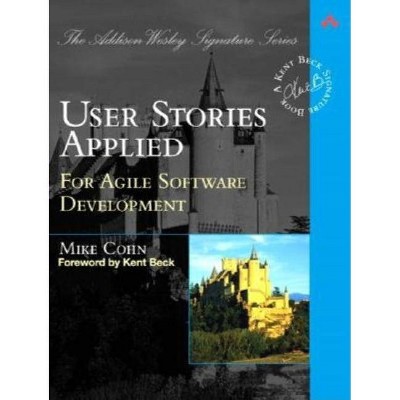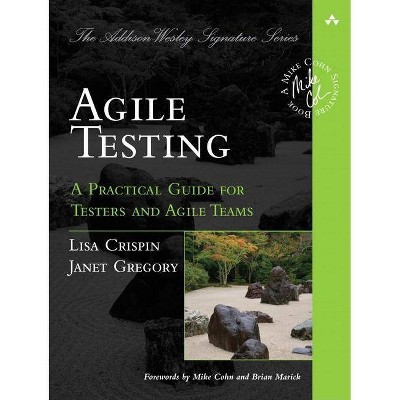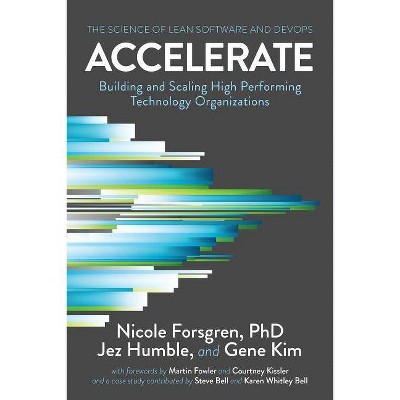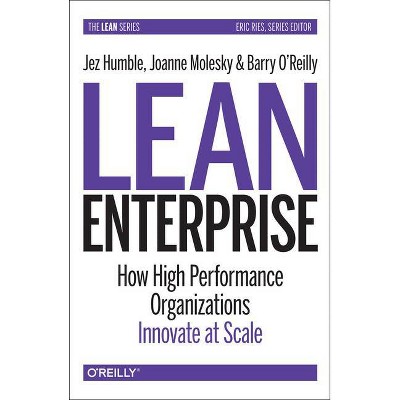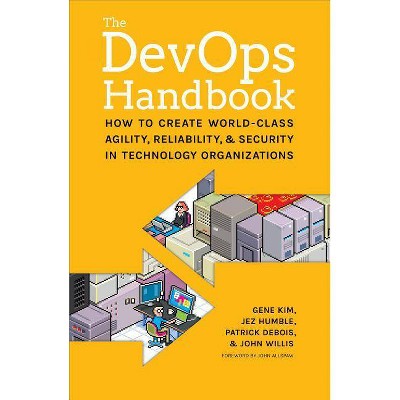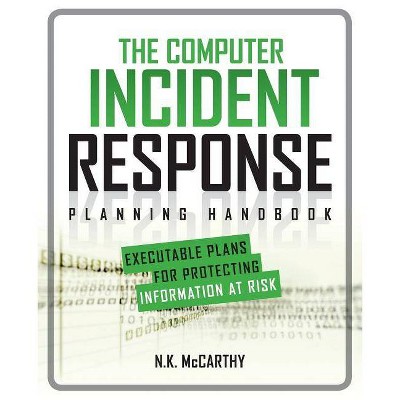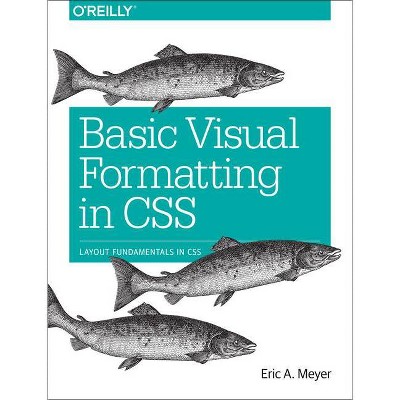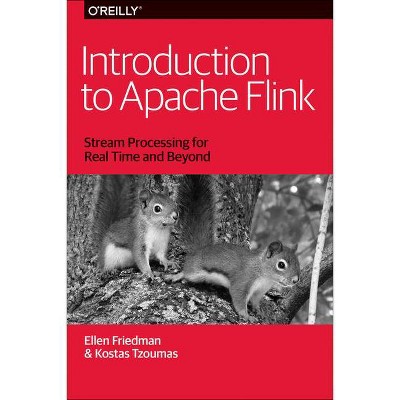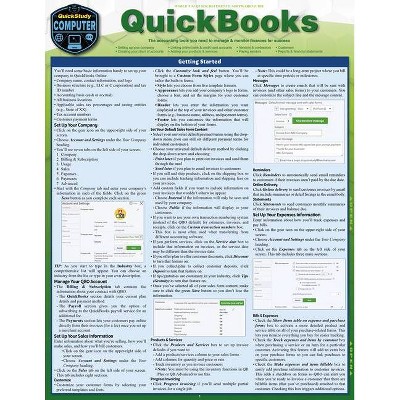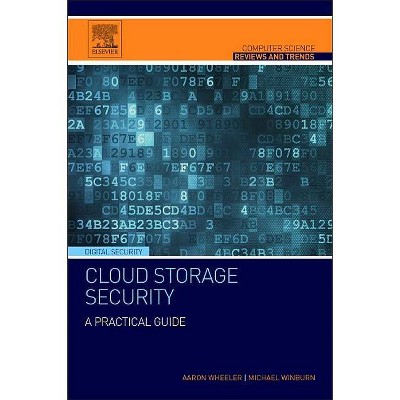Continuous Delivery - (Addison-Wesley Signature Series (Fowler)) by Jez Humble & David Farley (Hardcover)
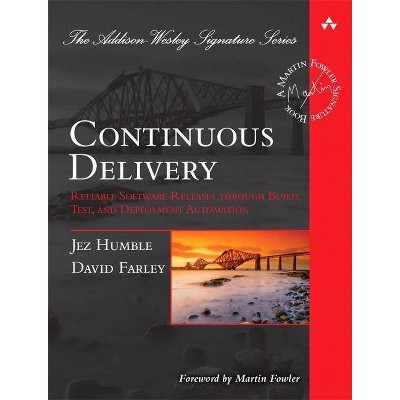
Similar Products
Products of same category from the store
AllProduct info
<p/><br></br><p><b> About the Book </b></p></br></br>Getting software released to users is often a painful, risky, and time-consuming process. This book sets out the principles and technical practices that enable rapid, incremental delivery of high quality, valuable new functionality to users. Through automation of the build, deployment, and testing process, and improved collaboration between developers, testers, and operations, delivery teams can get changes released in a matter of hours--sometimes even minutes-no matter what the size of a project or the complexity of its code base. <p/> Jez Humble and David Farley begin by presenting the foundations of a rapid, reliable, low-risk delivery process. Next, they introduce the "deployment pipeline," an automated process for managing all changes, from check-in to release. Finally, they discuss the "ecosystem" needed to support continuous delivery, from infrastructure, data and configuration management to governance. The authors introduce state-of-the-art techniques, including automated infrastructure management and data migration, and the use of virtualisation. For each, they review key issues, identify best practices, and demonstrate how to mitigate risks. <p/> Coverage includes <ul> <li>Automating all facets of building, integrating, testing, and deploying software </li> <li>Implementing deployment pipelines at team and organisational levels </li> <li>Improving collaboration between developers, testers, and operations </li> <li>Developing features incrementally on large and distributed teams </li> <li>Implementing an effective configuration management strategy </li> <li>Automating acceptance testing, from analysis to implementation </li> <li>Testing capacity and other non-functional requirements </li> <li>Implementing continuous deployment and zero-downtime releases </li> <li>Managing infrastructure, data, components and dependencies </li> <li>Navigating risk management, compliance, and auditing</li> </ul> Whether you're a developer, systems administrator, tester, or manager, this book will help your organisation move from idea to release faster than ever--so you can deliver value to your business rapidly and reliably.<p/><br></br><p><b> Book Synopsis </b></p></br></br><b>Winner of the 2011 <b>Jolt Excellence Award</b>!</b> <p/> Getting software released to users is often a painful, risky, and time-consuming process.</p> This groundbreaking new book sets out the principles and technical practices that enable</p> rapid, incremental delivery of high quality, valuable new functionality to users. Through</p> automation of the build, deployment, and testing process, and improved collaboration between</p> developers, testers, and operations, delivery teams can get changes released in a matter of hours--</p> sometimes even minutes-no matter what the size of a project or the complexity of its code base.</p> </p> Jez Humble and David Farley begin by presenting the foundations of a rapid, reliable, low-risk</p> delivery process. Next, they introduce the "deployment pipeline," an automated process for</p> managing all changes, from check-in to release. Finally, they discuss the "ecosystem" needed to</p> support continuous delivery, from infrastructure, data and configuration management to governance.</p> </p> The authors introduce state-of-the-art techniques, including automated infrastructure management</p> and data migration, and the use of virtualization. For each, they review key issues, identify best</p> practices, and demonstrate how to mitigate risks. Coverage includes</p> </p> - Automating all facets of building, integrating, testing, and deploying software</p> - Implementing deployment pipelines at team and organizational levels</p> - Improving collaboration between developers, testers, and operations</p> - Developing features incrementally on large and distributed teams</p> - Implementing an effective configuration management strategy</p> - Automating acceptance testing, from analysis to implementation</p> - Testing capacity and other non-functional requirements</p> - Implementing continuous deployment and zero-downtime releases</p> - Managing infrastructure, data, components and dependencies</p> - Navigating risk management, compliance, and auditing</p> </p> Whether you're a developer, systems administrator, tester, or manager, this book will help your</p> organization move from idea to release faster than ever--so you can deliver value to your business</p> rapidly and reliably.</p> </p><p/><br></br><p><b> From the Back Cover </b></p></br></br><p>Getting software released to users is often a painful, risky, and time-consuming process.</p> <p>This groundbreaking new book sets out the principles and technical practices that enable</p> <p>rapid, incremental delivery of high quality, valuable new functionality to users. Through</p> <p>automation of the build, deployment, and testing process, and improved collaboration between</p> <p>developers, testers, and operations, delivery teams can get changes released in a matter of hours--</p> <p>sometimes even minutes-no matter what the size of a project or the complexity of its code base.</p> <p> </p> <p>Jez Humble and David Farley begin by presenting the foundations of a rapid, reliable, low-risk</p> <p>delivery process. Next, they introduce the "deployment pipeline," an automated process for</p> <p>managing all changes, from check-in to release. Finally, they discuss the "ecosystem" needed to</p> <p>support continuous delivery, from infrastructure, data and configuration management to governance.</p> <p> </p> <p>The authors introduce state-of-the-art techniques, including automated infrastructure management</p> <p>and data migration, and the use of virtualization. For each, they review key issues, identify best</p> <p>practices, and demonstrate how to mitigate risks. Coverage includes</p> <p> </p> <p>- Automating all facets of building, integrating, testing, and deploying software</p> <p>- Implementing deployment pipelines at team and organizational levels</p> <p>- Improving collaboration between developers, testers, and operations</p> <p>- Developing features incrementally on large and distributed teams</p> <p>- Implementing an effective configuration management strategy</p> <p>- Automating acceptance testing, from analysis to implementation</p> <p>- Testing capacity and other non-functional requirements</p> <p>- Implementing continuous deployment and zero-downtime releases</p> <p>- Managing infrastructure, data, components and dependencies</p> <p>- Navigating risk management, compliance, and auditing</p> <p> </p> <p>Whether you're a developer, systems administrator, tester, or manager, this book will help your</p> <p>organization move from idea to release faster than ever--so you can deliver value to your business</p> <p>rapidly and reliably.</p> <p> </p><p/><br></br><p><b> Review Quotes </b></p></br></br><br>"If you need to deploy software more frequently, this book is for you. Applying it will help you reduce risk, eliminate tedious work, and increase confidence. I'll be using the principles and practices here on all my current projects."</p> -<i>Kent Beck, Three Rivers Institute</i></p> </p> "Whether or not your software development team already understands that continuous integration is every bit as necessary as source code control, this is required reading. This book is unique in tying the whole development and delivery process together, providing a philosophy and principles, not just techniques and tools. The authors make topics from test automation to automated deployment accessible to a wide audience. Everyone on a development team, including programmers, testers, system administrators, DBAs, and managers, needs to read this book."</p> -<i>Lisa Crispin, co-author of </i>Agile Testing</p> </p> "For many organizations Continuous Delivery isn't just a deployment methodology, it's critical to doing business. This book shows you how to make Continuous Delivery an effective reality in your environment."</p> -<i>James Turnbull, author of </i>Pulling Strings with Puppet</p> </p> "A clear, precise, well-written book that gives readers an idea of what to expect for the release process. The authors give a step-by-step account of expectations and hurdles for software deployment. This book is a necessity for any software engineer's library."</p> -<i>Leyna Cotran, Institute for Software Research, University of California, Irvine</i></p> </p> "Humble and Farley illustrates what makes fast-growing web applications successful. Continuous deployment and delivery has gone from controversial to commonplace and this book covers it excellently. It's truly the intersection of development and operations on many levels, and these guys nailed it."</p> -<i>John Allspaw, VP Technical Operations, Etsy.com and author of</i></p> </p> The Art of Capacity Planning <i>and </i>Web Operations</p> "If you are in the business of building and delivering a software-based service, you would be well served to internalize the concepts that are so clearly explained in Continuous Delivery. But going beyond just the concepts, Humble and Farley provide an excellent playbook for rapidly and reliably delivering change."</p> -<i>Damon Edwards, President of DTO Solutions and co-editor of dev2ops.org</i></p> </p> "I believe that anyone who deals with software releases would be able to pick up this book, go to any chapter and quickly get valuable information; or read the book from cover to cover and be able to streamline their build and deploy process in a way that makes sense for their organization. In my opinion, this is an essential handbook for building, deploying, testing, and releasing software."</p> -<i>Sarah Edrie, Director of Quality Engineering, Harvard Business School</i></p> </p> "Continuous Delivery is the logical next step after Continuous Integration for any modern software team. This book takes the admittedly ambitous goal of constantly delivering valuable software to customers, and makes it achievable through a set of clear, effective principles and practices."</p> -<i>Rob Sanh</i></p><br><p/><br></br><p><b> About the Author </b></p></br></br><b>Dave Farley</b> has been having fun with computers for nearly 30 years. Over that period he has worked on most types of software, from firmware, through tinkering with operating systems and device drivers, to writing games, and commercial applications of all shapes and sizes. He started working in large scale distributed systems about 20 years ago, doing research into the development of loose-coupled, message-based systems - a forerunner of SOA. He has a wide range of experience leading the development of complex software in teams, both large and small, in the UK and USA. Dave was an early adopter of agile development techniques, employing iterative development, continuous integration and significant levels of automated testing on commercial projects from the early 1990s. He honed his approach to agile development in his four and a half year stint at ThoughtWorks where he was a technical principal working on some of their biggest and most challenging projects. Dave is currently working for the London Multi-Asset Exchange (LMAX), an organization that is building one of the highest performance financial exchanges in the world, where they rely upon all of the major techniques described in this book.</p> </p> <b>Jez Humble</b> has been fascinated by computers and electronics since getting his first ZX Spectrum aged 11, and spent several years hacking on Acorn machines in 6502 and ARM assembler and BASIC until he was old enough to get a proper job. He got into IT in 2000, just in time for the dot com bust. Since then he has worked as a developer, system administrator, trainer, consultant, manager, and speaker. He has worked with a variety of platforms and technologies, consulting for non-profits, telecoms, financial services and on-line retail companies. Since 2004 he has worked for ThoughtWorks and ThoughtWorks Studios in Beijing, Bangalore, London and San Francisco. He holds a BA in Physics and Philosophy from Oxford University and an MMus in Ethnomusicology from the School of Oriental and African Studies, University of London. He is presently living in San Francisco with his wife and daughter.</p>
Price History
Cheapest price in the interval: 59.99 on October 27, 2021
Most expensive price in the interval: 59.99 on November 6, 2021
Price Archive shows prices from various stores, lets you see history and find the cheapest. There is no actual sale on the website. For all support, inquiry and suggestion messagescommunication@pricearchive.us
